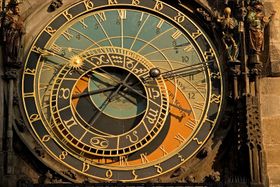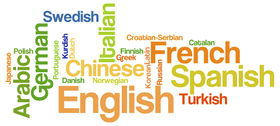Difference between revisions of "Category:Jewish"
| Line 57: | Line 57: | ||
publication of novels meant to strengthen the endurance of the jewish people if difficult times of persecution | publication of novels meant to strengthen the endurance of the jewish people if difficult times of persecution | ||
some Jewish authors began to investigate subjects of the Christian tradition from a Jewish perspective, as a reaction against rampant anti-Semitism. [[Meir Wiener]] in Germany on Jesus, Cecil roth on [[Judas Iscariot]], [[Edmond A. Fleg]] (1933) and [[Marc Chagall]] in France. | |||
Sholem Asch (1940s) | Sholem Asch (1940s) | ||
| Line 64: | Line 64: | ||
[[Howard Fast]] My Gl | [[Howard Fast]] My Gl | ||
Revision as of 07:05, 16 April 2016
|
File:.jpg [[]]
File:.jpg [[]] In the Jewish tradition, we don't see a development of works of fiction and art on Second Temple comparable to what Christianity developed since the Renaissance. There are two notable exceptions--composer Salomone Rossi and playwright Leone Modena. They were the product of the closest integration achieved by some Jewish communities in Northern Italy at the beginning of the 17th century. With the Emancipation Jewish authors had more opportunities in Europe to contribute to the cultural life of their time. Composers Isaac Nathan, Felix Mendelssohn-Bartholdy, Ferdinand Hiller and Samuele Levi authored music and oratorios on figures like Judith, and Paul and events, like the Destruction of Jerusalem, which were also popular in Christian tradition. In the second half of the 19th century, Jewish writers and rabbis influenced by the Reform movement began addressing some subjects of the Second Temple period from a more distinctive Jewish point of view, for a Jewish audience. In the United States, Isaac Mayer Wise (Maccabees, 1855), Henry Iliowizi Herman Milton Bien, then Judah Loeb Landau Julius Kossarski ("Destruction of Jerusalem by Titus", 1855 Leopold Stein. In Hebrew (Kalman Schulman) and in Yiddish (Isaac Meir Dick, Israel Meir Wohlman, and especially Abraham Goldfaden, Nahum Meir Shaikewitz, Joseph Judah Lerner, Ya`akov Ter Si sviluppa anche una letteratura per ragazzi, Henry Pereira Mendes, Janie Jacobson Elma Ehrlich Levinger (1918)
some Jewish authors began to investigate subjects of the Christian tradition from a Jewish perspective, as a reaction against rampant anti-Semitism. Meir Wiener in Germany on Jesus, Cecil roth on Judas Iscariot, Edmond A. Fleg (1933) and Marc Chagall in France. Sholem Asch (1940s) After the Holocaust, Jewish authors focus on the reconstruction and the birth of the Jewish State Howard Fast My Gl
|
|
Subcategories
This category has the following 8 subcategories, out of 8 total.
1
- 1570 Rossi, Salomone (composer) ITA
- 1809 Mendelssohn-Bartholdy, Felix (composer) DEU
- 1810 Geiger, Abraham (scholar) DEU
- 1813 Levi, Samuele (composer) ITA
- 1862 Schildkraut, Rudolph (actor) AUT
- 1866 Sandow, Ludwig (composer) AUT
- 1913 Gordon, Robert (actor, director) USA
- 1943 Levine, James (conductor) USA
Pages in category "Jewish"
The following 200 pages are in this category, out of 390 total.
(previous page) (next page)- Jewish Authorship (1450s)
- Jewish Authorship (1500s)
- Jewish Authorship (1600s)
- Jewish Authorship (1700s)
- Jewish Authorship (1800s)
- Jewish Authorship (1850s)
- Jewish Authorship (1900s)
- Jewish Authorship (1910s)
- Jewish Authorship (1920s)
- Jewish Authorship (1930s)
- Jewish Authorship (1940s)
- Jewish Authorship (1950s)
- Jewish Authorship (1960s)
- Jewish Authorship (1970s)
- Jewish Authorship (1980s)
- Jewish Authorship (1990s)
- Jewish Authorship (2000s)
- Jewish Authorship (2010s)
1
- Yehuda Halevi (M / Spain, 1075/85-1141), scholar
- Menahem Recanati (M / Italy, 1250-1310), scholar
- Abraham Conat (M / Italy, 15th cent.), printer
- Isaac Abravanel (M / Portugal, Spain, Italy, 1437-1508), scholar
- Guglielmo Raimondo Moncada (M / Italy, 15th cent.), scholar, translator
- Solomon ibn Verga (M / Spain, 1450c-1525c), scholar
- Abraham ben Samuel Zacuto (M / Spain, Portugal, Tunisia, 1452-1515), scholar
- Elia Levita (M / Germany, Italy, 1469-1549), scholar
- Moses Alshekh (1498-1593), scholar
- Jacob Tam ibn Yahya
- Samuel Usque (M / Portugal, Italy, 1500-1555c), scholar
- Azariah de' Rossi (M / Italy, 1513-1578), scholar
- Sisto da Siena (M / Italy, 1520-1569), scholar
- David de Pomis (M / Italy, 1525-1593), scholar
- Mordecai Jaffe (M / Czechia, 1530-1612), scholar
- David ben Solomon Gans (1541-1613), scholar
- Philip Ferdinand (1555-1598), scholar
- Leone Modena (M / Italy, 1571-1648), scholar, playwright
- Uriel Acosta (M / Portugal, Netherlands, 1585-1640), scholar
- Joseph Semah Arias (M / Spain, 17th century), scholar
- Judah Leon Templo
- Abraham ben Joseph ha-Levi (1620c-1670c), scholar
- Charles-Marie de Veil (1630-1685), scholar
- Baruch Spinoza (M / Netherlands, 1632-1677), scholar
- David Nieto (M / Italy, Britain, 1654-1728), scholar
- Judah Monis (M / Italy, United States, 1683-1764), scholar
- Naphtali Herz Wessely (1725-1805), scholar
- Peter Beer (1758-1838), scholar
- Judah Leib Ben Ze'ev (1764-1811), scholar
- Isaac Nathan (M / Britain, Australia, 1792-1864), composer
- Isaak Markus Jost (1793-1860), scholar
- Joseph Salvador (M / France, 1796-1873), scholar
- Morris Jacob Raphall (M / Sweden, Britain, United States, 1798-1868), scholar
- Samuel David Luzzatto (M / Italy, 1800-1865), scholar
- Salomon Munk (1803-1867), scholar
- Gustav Weil (1808–1889), scholar
- Levi Herzfeld (1810-1884), scholar
- Leopold Stein (M / Germany, 1810-1882), playwright
- Joseph Derenbourg (1811-1895), scholar
- Ferdinand Hiller (M / Germany, 1811-1885), composer
- Ludwig Philippson (M / Germany, 1811-1889), novelist
- Julius Kossarski (M / Germany, 1812-1879), playwright
- Isaac Meir Dick (1814-1893), novelist
- Giuseppe Rafaele Levi (M / Italy, 1814-1874), scholar
- Mór Ballagi (1815-1891), scholar
- Grace Aguilar
- Heinrich Hirsch Graetz (1817-1891), scholar
- Lazare Eliezer Wogue (1817-1897), scholar & translator
- Kalman Schulman (1819-1899), novelist
- Isaac Mayer Wise (M / Czechia, United States, 1819-1900), scholar, novelist
- Hilary Nussbaum (1820-1895), scholar
- Isaac Goldstein
- Adolph Jellinek (1821-1893), scholar
- Israel Meir Wohlman (1821-1913), playwright
- Elia Benamozegh (M / Italy, 1823-1900), scholar
- Solomon Rubin (1823-1910), scholar
- Alfred Edersheim (1825-1889), scholar
- Anton G. Rubinstein (M / Russia, 1829-1894), composer
- Herman Milton Bien (M / United States, 1831-1895), playwright, novelist
- Joseph Joachim (M / Hungary, 1831-1907), composer
- Samuel Baeck (1834-1912), scholar
- David Castelli (M / Italy, 1836-1901), scholar
- Moïse Schwab (1839-1918), scholar
- Abraham Goldfaden (1840-1908), playwright and composer
- Henri Léopold Lévy (1840-1904), artist
- Minnie Dessau Louis (F / United States, 1841-1922), poet
- Alexander Kohut (M / Hungary, 1842-1894), scholar
- Kaufmann Kohler (1843-1926), scholar
- Moses Horowitz (1844-1910), playwright
- Solomon Schechter (1847-1915), scholar
- Joseph Judah Lerner (M / Russia, 1849-1907), playwright
- Solomon Schill (1849-1918), scholar
- Nahum Meir Shaikewitz (1849-1905), novelist
- Wilhelm Bacher (1850-1913), scholar
- Ignác Goldziher (1850-1921), scholar
- Henry Iliowizi (1850-1911), playwright
- Ya`akov Ter (1850-1935), playwright
- Henry Pereira Mendes (1852-1937), playwright
- Cossmann Werner (1854-1918), scholar
- Moses Gaster (1856-1939), scholar
- Maurycy Gottlieb (1856-1879), artist
- Israël Lévi (1856-1939), scholar
- Richard Waddy Moss (1856-1935), scholar
- Moisés Rubin (M / Argentina, 1856-1940), novelist
- Israel Abrahams (1858-1924), scholar
- David Samuel Margoliouth (1858-1940), scholar
- Claude G. Montefiore (1858-1938), scholar
- Adolphe Danziger De Castro (1859-1959), writer
- Simon Dubnow (M / Russia, 1860-1941), scholar
- Théodore Reinach (1860-1928), scholar
- Samuel Hirszenberg (1865-1908), artist
- Lucien Lévy-Dhurmer (1865-1953), artist
- Judah Loeb Landau (M / Austria, 1866-1942), playwright
- Max Leopold Margolis (1866-1932), scholar
- Felice Momigliano (M / Italy, 1866-1924), scholar
- Adolf Büchler (1867-1939), scholar
- Gerald Friedlander (1871-1923), scholar
- Lazarus Goldschmidt (1871-1950), scholar
- Leo Baeck (1873-1956), scholar
- Louis Ginzberg (1873-1953), scholar
- Jacob Zallel Lauterbach (1873-1942), scholar
- Meir Balaban (1874-1942), scholar
- Edmond A. Fleg (M / France, 1874-1963), novelist
- Abraham Kahana (M / Russia, Palestine, 1874-1946), scholar
- Joseph Klausner (M / Lithuania, Palestine, 1874-1958), scholar
- Felix Perles (1874-1933), scholar
- Moses Schorr (1874-1941), scholar
- Henri Bernstein (M / France, 1876-1953), playwright
- Emma Dessau-Goitein (F / Germany, Italy, 1877-1968), artist
- Hyman Gerson Enelow (1877-1934), scholar
- Jules Isaac (M / France, 1877-1963), scholar
- Egon Friedell (M / Austria, 1878-1938), playwright
- Paul P. Levertoff (1878-1954), scholar & translator
- Alexander Marx (1878-1953), scholar
- Arno Nadel (M / Germany, 1878-1943), composer
- Alla Nazimova (F / Russia, United States, 1879-1945), actor
- Eugen Täubler (1879-1953), scholar
- Jacob Weinberg (M / Russia, United States, 1879-1956), composer
- Sholem Asch (1880-1957), novelist
- Aharon Ben-Or (M / Palestine, 1880), novelist
- Jacob Epstein (1880-1959), artist
- Max Radin (1880-1950), scholar
- Jehuda Leib Wohlman (1880-1955), playwright
- Herbert Cutner (1881-1969), nonfiction writer
- Israel Zolli (1881-1956), scholar
- Konrad Bercovici (1882–1961), novelist
- Robert Eisler
- Norman Bentwich (1883-1971), scholar
- Umberto Cassuto (M / Italy, Israel, 1883-1951), scholar
- G. George Fox (b.1883), nonfiction writer
- Max Brod (M / Czechia, Israel, 1884-1968), novelist
- Lion Feuchtwanger (M / Germany, 1884-1958), novelist
- Joseph Reider (1884-1960), scholar
- Max Oppenheimer (Austria, United States, 1885-1954), artist
- Joseph Achron (1886-1943), composer
- Giorgio Levi Della Vida (1886-1967), scholar
- Joseph Opatoshu (1886-1954), novelist
- Elia Samuele Artom (1887-1965), scholar
- Marc Chagall (1887-1985), artist
- Abraham Cohen (1887-1957), scholar
- Elma Ehrlich Levinger (1887-1958), playwright
- Zalman Rejzen (1887-1941), translator
- Yehiel Yeshaia Trunk (1887-1961), novelist
- Harry Austryn Wolfson (1887-1974), scholar
- Nahum Levison (b.1888), scholar
- Mendl Osherowitch (1888-1965), novelist
- Guido Kisch (M / Czechia, Germany, United States, Switzerland, 1889-1985), scholar
- Eleazar Sukenik (1889-1953), scholar
- ~ Hanoch Albeck (1890-1972), Polish Israeli scholar
- Joshua Bloch (1890-1957), scholar
- Elias Gilner (b.1890), novelist
- Yehoshua Gutman (1890-1963), scholar
- Abraham Aaron Neuman
- Anna Belle Safier (F / United States, 20th cent.), composer
- Salomon A. Birnbaum (1891-1990), scholar
- Izak Goller (1891-1939), playwright
- Tsevi Livneh (M / Israel, 1891-1985), novelist
- Jacob Weinshall (M / Israel, 1891-1980), novelist
- Solomon Zeitlin (M / United States, 1892-1976), scholar
- Meir Wiener (1893-1941), poet
- Alberto Pincherle (M / Italy, 1894-1979), scholar
- Victor Tcherikover (1894-1959), scholar
- Salo W. Baron (1895-1989), scholar
- Abraham Wolf Binder (M / United States, 1895-1966), composer
- Mario Castelnuovo-Tedesco (M / Italy, United States, 1895-1968), composer
- Louis Finkelstein (1895-1991), scholar
- Maurice Samuel (1895-1972), translator
- ~ Edmund Menahem Stein (1895-1943), Jewish-Polish scholar
- Franz Werfel (M / Czechia, 1895-1976), playwright
- Nathan Bistritzky (M / Israel, 1896-1980), playwright
- Abraham Raphael Forsyth (1896-1954), novelist
- Joseph Schildkraut (M / Austria, United States, 1896-1964), actor
- Elias J. Bickerman (1897-1981), scholar
- Leon Feinberg (1897-1969), novelist
- Gershom Gerhard Scholem (1897-1982), scholar
- Beryl David Cohon (1898-1976), scholar
- Abraham Schalit (1898-1979), scholar
- Isaac Lamdan (1899-1954), poet
- Siegfried E. van Praag (M / Netherlands, 1899-2002), novelist
- Adolf Reifenberg (1899-1953), scholar
- Cecil Roth (1899-1970), scholar and novelist


